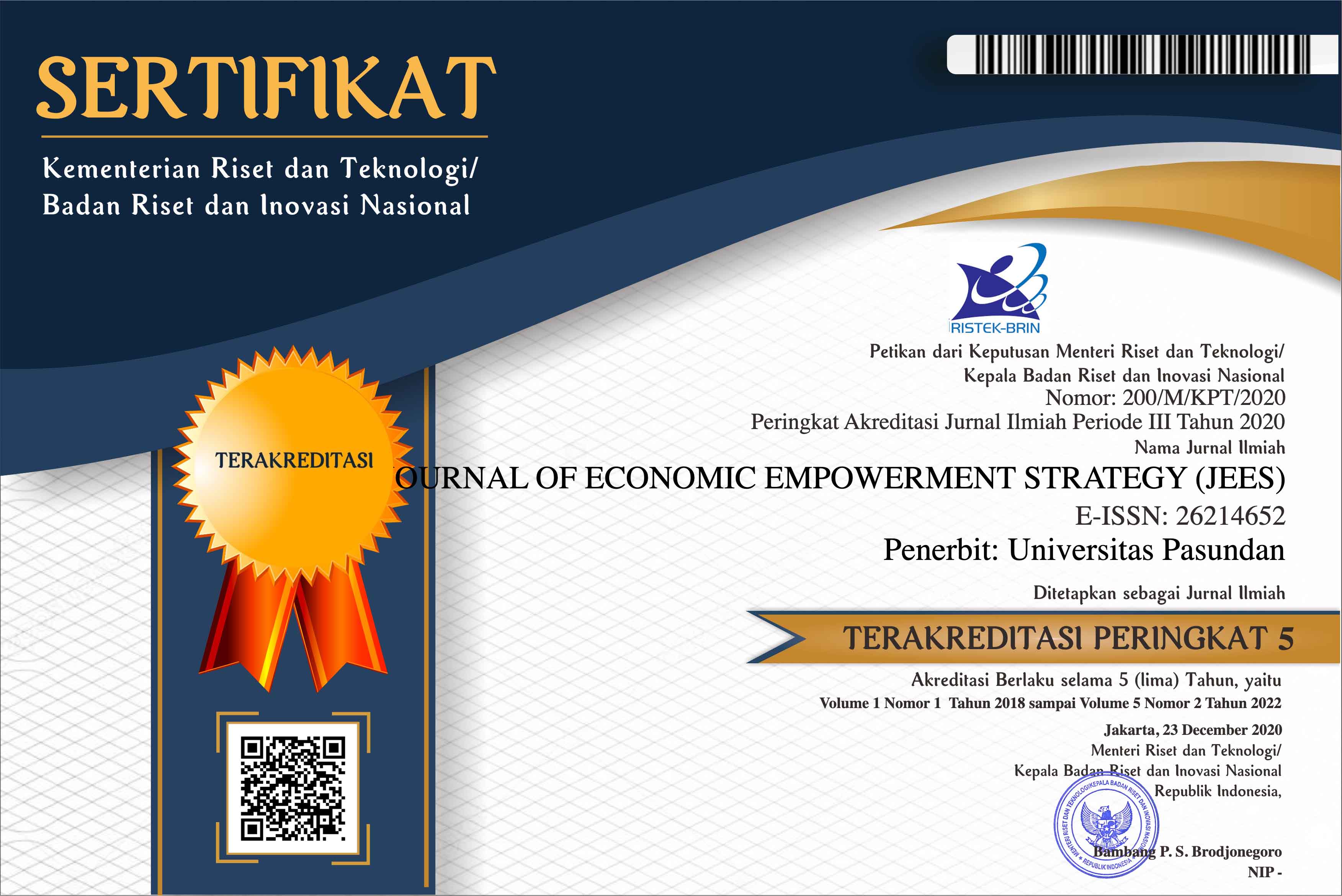Publication Ethic
PUBLICATION ETHICS AND MALPRACTICE STATEMENTS
Ethical Guidelines for Journal Publication
The publication of an article in Journal of Economic Empowerment Strategy (JEES) is an important medium in development of a coherent and respected network of knowledge that reflects the quality of work of the authors and institutions that support them.
Peer-reviewed articles support and embody the scientific method. These are, therefore, important to agree upon standards of expected ethical behavior for all parties involved in the act of publishing.
Coordinator of Private Higher Education Region IV, West Java Banten and Universitas Pasundan as publishers of this Journal take their duties of guardianship over all stages of publishing and recognize ethics involved and other responsibilities. The journal is committed to upholding the highest standards of publication ethics and takes all possible measures against any publication malpractices.
All authors submitting their articles for publication shall attest that such represent their original contributions and have not been copied or plagiarized in whole or in part from other works. Researches submitted will be subjected for plagiarism detection evaluation.
Publication Decisions
The editors-in-chief of the Journal of Economic Empowerment Strategy (JEES) is responsible in deciding which of the articles submitted should be published. They are guided by the policies and guidelines of the journal.
Confidentiality, Disclosure, and Conflicts of Interests
The editorial staff and referees see to it that any information on the comments of a submitted manuscript is not disclosed to anyone other than the corresponding authors. In cases wherein such are requested by others, permission is secured first from the authors and the editors-in-chief who have the right to grant or deny.
Any data in the submitted manuscript are not used as citations in the editorial staff and referees’ own researches until the paper has been published. When conflicts of interest exist, the editorial staff and referees are objective at all times.
Fair Play
The editors and / referees at any time evaluate manuscripts for their intellectual content without regard to race, gender, sexual orientation, religious belief, ethnic origin, citizenship, or political philosophy of the authors.
Standards of Objectivity
Reviews are conducted objectively. Referees express their views clearly with supporting arguments. Personal criticism to the author is inappropriate.
Acknowledgement of Sources
Any statement or data derived from any source are properly cited. A reviewer calls the editors-in-chief attention for any substantial similarity or overlap between the manuscript under consideration and the source of which he has personal knowledge.
Originality and Plagiarism
The research papers shall pass through plagiarism detection evaluation and the acceptable originality is 90 percent. If the paper’s level of plagiarism is 50 percent and above, the paper is not accepted. If 49 percent and below, the paper will be sent back to the author for proper citations and rephrasing until it reaches 90 percent or more originality.
Multiple, Redundant or Concurrent Publication
An author should not publish his article in more than one journal, hence, he is obliged to submit an accomplished copyright transfer form to the editorial board.
Resolving Issues
The editorial board together with the research committee and the authors concerned discuss and resolve issues and concerns that may arise in the publication of a submitted manuscript.













